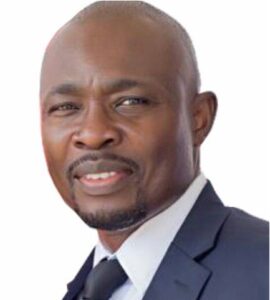Women continue to face obstacles in accessing land in Ghana – Expert

In spite of progress made over the years in improving the lot of women, access to land still remains a major challenge to women.
According to findings and analysis of 15 women cooperatives done between 2017 and 2022 in farming communities in the Northern, North East, Western, Ashanti and the Ahafo Regions of Ghana, women continue to face peculiar challenges in accessing land.
The analysis by Dr. Gad Asorwoe Akwensivie, a land governance expert and legal practitioner, indicated that women continue to face peculiar challenges in their quest to access land not only for agriculture, but also for development and as well as access to formal sources of credit to either start or expand their businesses.
Dr Akwensivie made a presentation of the analysis on the topic: Women, land ownership and access to credit – salient observations from rural Ghana, at the technical session of the International Federation of Surveyors Working Week 2024 at the La Palm Beach Hotel in Accra May 21, 2024.
He explained the dichotomy between gender, land ownership and access to credit and demonstrated how the requirements for accessing loans by most commercial banks and some rural banks in Ghana was contributing to improving or worsening the plight and livelihood of women.
He said the problem is partly due to the fact that land tends to be held largely by men or kingship groups controlled by men so that women can only access land through a male relation usually the father or their male sons.
“In many parts of rural Ghana, a woman’s access to land and land use rights can also be decided by marriage arrangements through marrying a man from the land-owning clan which then gives her some restricted access or right to use of the land. This limited access to land may be curtailed with the breakdown of the marriage relationship,” he said.
He added that this trend of events has a direct effect on women’s ability to access credit because most banks and financial institutions tend to provide loans and credit to applicants who are able to provide some form of ownership to property, mainly land.
Dr. Akwensivie noted further that, an efficient system for accessing credit has a big role to play in the betterment of lives of rural people since majority of the people who till the land or use the land are women.
“Overall, the findings and results show that women in rural Ghana continue to face discriminatory practices in their effort to secure bank loans and facilities for their farming activities and trading businesses and that the formation of cooperatives represent the best and surest way for women to access loans as it provides the banks and financial institutions some form of security,” he said.
Dr. Akwensivie made a strong case for education of women to understand the benefits of forming and or joining cooperatives. He urged the GCB Bank which he described as the most decentralized local bank, the Opportunity International Savings and Loans and the Women’s World Banking to further decentralize their services to get closer to remote communities.
